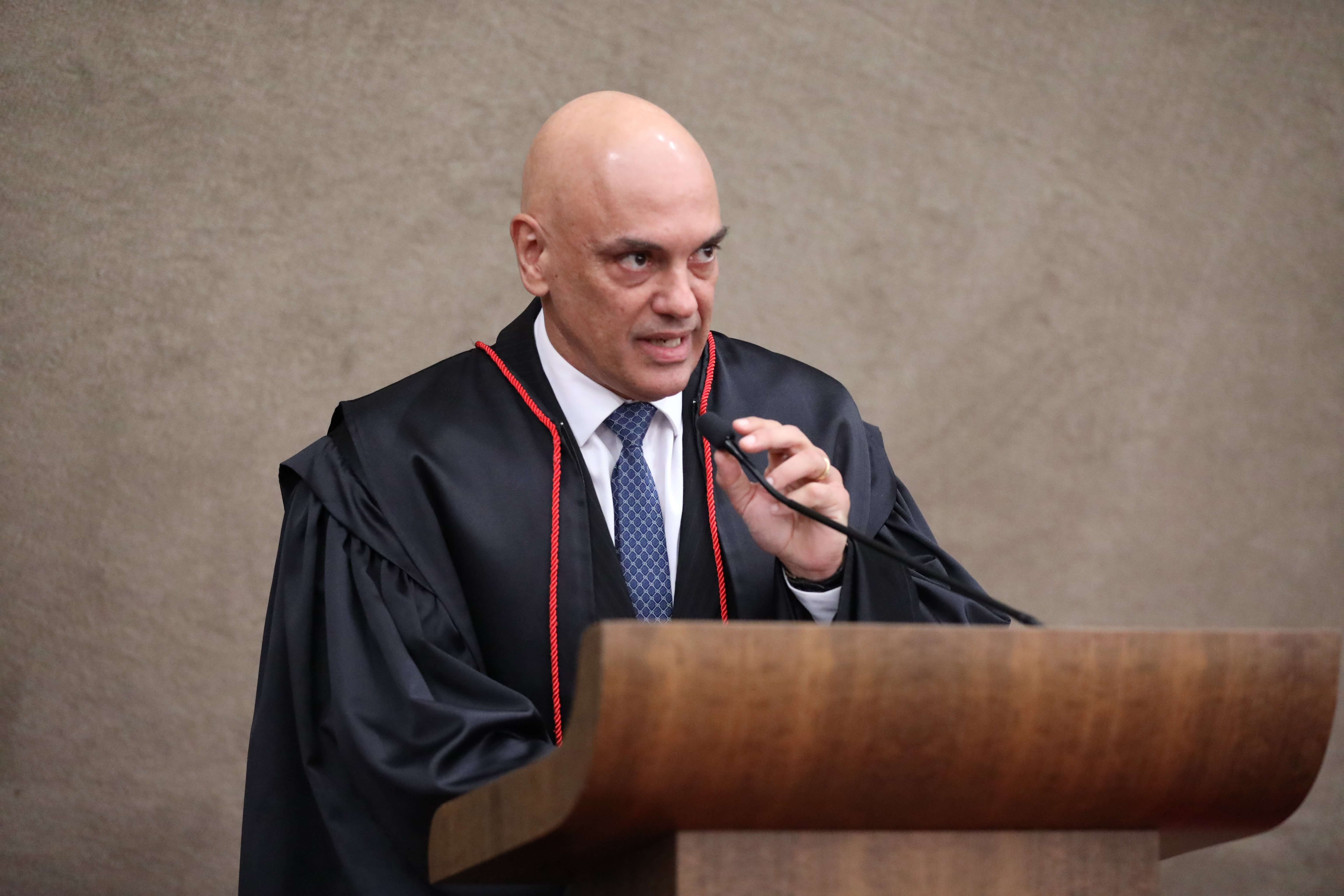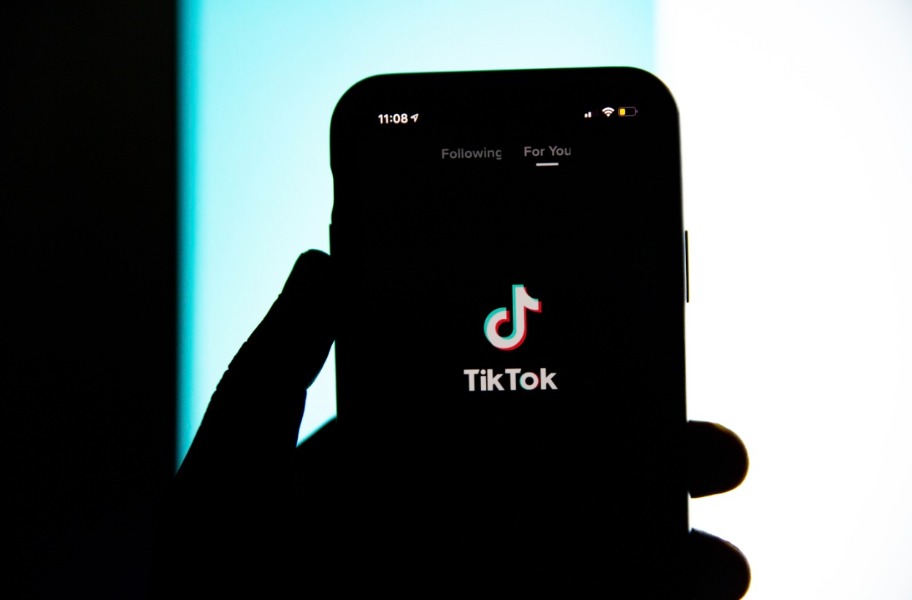Musk’s X Banned in Brazil

Published by The Lawfare Institute
in Cooperation With

On Aug. 30, Justice Alexandre de Moraes, of the Federal Supreme Court of Brazil (STF), suspended one of the largest social media platforms in the world, X (formerly known as Twitter). The suspension made global headlines, as the New York Times, the Guardian, Le Monde, and other outlets reported on the court order as soon as it was issued.
Before the ban, X was the eighth most popular form of social media in Brazil, boasting 24.3 million users in 2023. But the effects of the suspension go far beyond those millions of users. The platform had a big influence on political affairs and information sharing in Brazil, and the court order has major implications for freedom of expression, the protection of democracy, and the economic power of big tech.
Beginning in 2013, Brazil faced a series of challenges to its democratic health. These challenges included the exaggerated judicialization of politics, the incursion of the military in the political arena, and the growth in popularity of far-right politicians—in other words, a complex sum of elements that led to the election of Jair Bolsonaro as president in 2018. These democratic challenges reached a crescendo on Jan. 8, 2023, in a coup attempt following the election of Bolsonaro’s main opponent, Luís Inácio Lula da Silva. Institutions created by the 1988 Constitution, however, were able, to a certain extent, to stymie the democratic erosion, with the STF playing a starring role.
After the coup, Brazil’s highest court counted on the Superior Electoral Court to protect electoral institutions. (In Brazil, electoral courts have overseen elections since the 1930s.) The electoral court responded to Bolsonaro’s attacks on the electronic ballot system, signaled that it would control disinformation on the internet in the 2022 presidential election, punished representatives who abused fake news to be elected, and disqualified Bolsonaro from participating in Brazilian elections for eight years.
The STF, however, fended off challenges to Brazil’s democracy well before the Jan. 8 coup attempt. In 2019, it started a legal inquiry into the diffusion of fake news and aggression campaigns against the STF and its justices. The STF’s chief justice at the time resorted to the intern regulations of the court to justify this inquiry. According to Article 43 of these regulations, the chief justice can open an inquiry in order to investigate crimes committed inside the tribunal’s facilities, when the facts involve persons under the court’s jurisdiction. In an unusual interpretation, the chief justice argued that crimes committed on the internet could be included in such an inquiry. This was the so-called fake news inquiry, which is controversial because the tribunal figures, at the same time, as the investigator and the trial court.
After declaring its inquiry constitutional, the STF created a series of connected investigations, including inquiries on anti-democratic acts from 2021, an unofficial counseling body created inside the presidential cabinet to attack opponents of the then government, which came to be known as the “hate cabinet,” and others. Then, following the Jan. 8 coup attempt, the court ruled that it could try the criminal lawsuits filed against the protesters, reaching 200 convictions by April of this year, after arresting around 2,000 people in the attack’s aftermath.
The institutions that offered some type of protection to Brazilian democracy played a decisive role. At the head of these institutions, however, are individuals who seemed to be—or considered themselves to be—more important than the main legal entities.
Justice Alexandre de Moraes
STF Justice Alexandre de Moraes started his law career as a prosecutor in the state of São Paulo and a constitutional scholar at the University of São Paulo. His textbook was one of the most popular in the 1990s and 2000s, especially for students preparing for public tests in legal positions. Moraes served as secretary of justice in 2002 and secretary of public security in 2014, both positions in the state of São Paulo. In this latter position, he became known for turning a blind eye to police violence. In 2016, President Michel Temer (who took office when Dilma Rousseff was impeached) nominated Moraes as minister of justice. Again, politics of law and order were his blueprint: At the time, a video surfaced in which Moraes appeared cutting down marijuana plants with a giant knife. The irony of the STF’s recent decision to decriminalize recreational marijuana use could not be starker. It was also Temer who nominated Moraes for the STF in 2017.
Justice Moraes gained the attention of national and foreign media with the creation of the fake news inquiry and the aforementioned derivative investigations. Brazil distinguishes between accusatory and judgment functions in criminal law; however, the STF seemed pressed by the facts at the time, since the investigative authority, the general prosecutor, had been captured by Bolsonaro. Moraes went further, justifying that any aggression against political institutions could be investigated in other inquiries linked by theme to the fake news inquiry. According to a Brazilian newspaper, about 20 inquiries have been conducted by Justice Moraes. Add to this the fact that Moraes was the chief justice (2022-2024) of the Superior Electoral Court during the 2022 elections.
During Bolsonaro’s term, Justice Moraes ordered the disclosure of COVID-19 contamination data, halted investigations aimed only at discrediting the Brazilian election system, and was even called a scoundrel by the former president. He was quick and harsh in responding to the federal highway police interfering with the transport of electors during the elections, leading to the imprisonment of the police commander. Following the Jan. 8, 2023, riots, he suspended the governor of the federal district, the authority responsible for Brasília, although President Lula had already taken less intrusive legal measures in that direction; as investigations proceeded, Moraes subpoenaed former army commanders, ministers, and President Bolsonaro over their involvement in the coup attempt.
Justice Moraes also investigated Google and Telegram for the platforms’ campaigns against a fake news bill that is under consideration in the Brazilian National Congress—these proceedings were halted. Moraes ordered the suspension of Telegram for discrediting the fake news bill and not having a legal representative in Brazil, as it is supposedly required by the Brazilian Civil Code. Hours after the order, the company abided by Moraes’s orders.
It is not against Brazilian law for STF justices to individually oversee criminal inquiries conducted by the federal police or the general prosecutor. The problem here lies in the amount of investigations conducted by one single justice. We can easily see that the range of subjects, individuals, and companies targeted by one single justice at the STF is wider than anyone could ever imagine. Although several rulings were to be confirmed by the court’s full bench, the concentration of power, duration of the procedures, and absence of full disclosure of all that has been done are generally regarded as an obstacle to the rule of law and due process of law.
Justice Moraes’s performance (like some of the STF’s rulings) generated reactions mainly from far-right politicians, but not only them. The National Congress threatened the STF with constitutional amendments to create an override system by which it could suspend constitutional review rulings, limit individual rulings, and even set term limits for justices. The concentration of individual powers in the STF’s justices dates back to the 1990s, when different constitutional and legal reforms aimed to accelerate judgments in courts. In the 2020s, however, willful judgeship started to dominate the Brazilian judiciary, including the STF. Justices, acting as rapporteurs, started to issue provisional orders on politically sensitive cases. With his own background and the court’s mood during the threats to Brazilian democracy, Justice Moraes gained momentum. That was when a mogul saw the opportunity to explore the fragilities an individualist, instead of institutional, performance can generate.
Elon Musk in (and Beyond) Brazil
In May 2022, Elon Musk made a surprise visit to Brazil and was received by then-President Bolsonaro, who called him a “legend of freedom.” One month before his trip, Musk started the acquisition of the Twitter platform, which wrapped up in October 2022. Right after the start of these procedures, content moderation became a problem on Twitter, with Musk interfering both inside and outside Brazil. He rebranded Twitter as X and started to face issues related to the control of disinformation. The European Union Commission also charged the company with disrespecting the Digital Services Act.
After some setbacks in India, in April 2024 Musk and his company agreed to suspend over 212,000 accounts for violations of different terms of use norms, although Narendra Modi’s government was mainly targeting farmers who were protesting his government. In Turkey a month later, X agreed to suspend several accounts linked to Recep Tayyip Erdogan’s political opponents.
Musk had different plans for Brazil.
After receiving orders to suspend accounts of people accused of involvement in the Jan. 8 attacks, Musk took a public stand in April 2024 and began tweeting against Justice Moraes, threatening to unveil decisions that could disgrace him. Though Musk did not immediately make good on his threat, the spat marked the start of a fight between Musk and Moraes, two public figures who do not have a problem being at the center of the world’s attention. Moraes would also face some misfortune when a Brazilian newspaper leaked WhatsApp conversations in which he seemed to ignore legal procedures when he was, at the same time, chief justice of the Superior Electoral Court and a member of the STF. These conversations are related to all the investigations described here. Although there could be some change in the future, Moraes’s court backed him, and there was not, at least for now, any silver bullet. That was when Moraes raised the stakes.
X Suspended in Brazil: End of Democracy?
Musk shut X’s offices in Brazil on Aug. 18. Consequently, the company’s legal representation disappeared from the country. In an unusual move, Justice Moraes subpoenaed Musk by tagging him in X’s STF profile. The court ordered X to identify a legal representative within 48 hours or the social media platform would be suspended. The suspension occurred on Aug. 30. In his ruling, Moraes reported that there were proceedings investigating obstruction of justice and crime incitement by users of X against federal police authorities. Several of Bolsonaro’s supporters already investigated by the court, who had their accounts suspended in the past, returned to social media and kept making the threats. On Aug. 7, Moraes ordered the platform to suspend the accounts—which did not happen. He also sanctioned the company with multiple fines. Moraes reported that Musk publicly declared his company would not comply with the court’s rulings. The fines, at present, total almost $3.5 million.
In the reasons for the ruling, Justice Moraes mentions that the Brazilian Internet Civil Act provides for the accountability of internet providers for damages that judicial authorities order them to cease. Also, the Brazilian Civil Code demands that foreign companies have legal representatives in Brazil—one could argue that this applies to any company that has internet websites operating in the country. In Musk’s view, his move to take the company out of the country was an oblique way of disobeying judicial rulings. Moraes mentioned that the STF already has case law that restricts the freedom of expression to exclude illegal activities. He also stated that other companies, such as Google and Meta, obeyed the STF’s rulings. The ruling also mentions how Musk incited hate against the court. Moraes considered Starlink a de facto part of Musk’s enterprises and said that its bank accounts should be blocked for fine payment. In the end, Moraes has effectively suspended the social media platform from functioning until all STF rulings are complied with. On Sept. 2, a STF panel confirmed Moraes’s ruling. The panel also agreed with a controversial—and probably difficult to enforce—point in the ruling that finds any person in Brazil who tries to access X via VPN subject to a nearly $9,000 fine without any due process.
Bolsonaro’s supporters quickly compared the suspension to a judicial dictatorship. Conservative newspapers also were harsh, following previous criticisms. Lula declared the judicial rulings must be obeyed and that Musk’s wealth does not allow him to do everything he wants to. Justice Luís Roberto Barroso, the STF’s chief justice, was quick to affirm that the fake news inquiry will probably end after October 2024, following Brazil’s local elections. Musk declared that he would create a profile on X to disseminate the supposedly illegal rulings Moraes issued.
Moraes vs Musk?
It is probably still early to evaluate all the effects of the decision, but one consideration should be kept in mind. As legal philosopher Gerald J. Postema argued in a recent book, a core aspect of the rule of law is the idea of universal authority of legal rules and reciprocal accountability to the law. That principle is threatened if the internet is regarded as a space beyond the reach of law, in which economically and politically powerful agents can exercise arbitrary power beyond the reach of any public norm. There are good reasons for a judge to affirm that billionaires should abide by the rule of law in any country in the world. Big tech’s reluctance to moderate disinformation opposes the Brazilian legal basis that allows for control. However, the legitimacy terrain will not be solid if the institutional ground is superseded by individualist actions. Problems with judges and justices who rule on highly sensitive matters are not new in Brazil. The STF risks its already damaged image when it continues to decide matters relying on a single justice position. Although the ruling was confirmed by an STF panel, the recurrence of individualistic positions does not ensure the court’s accountability.
A tech mogul sided with supporters of a coup d’état in Brazil and got into a feud with a justice who is determined to define responsibilities in this case. The absence of social media platform regulation, by its nature, is a problem that affects any country in the world. Is that a reason to celebrate X’s suspension? That would be a hasty conclusion, one that is probably better reserved until after the STF’s investigations end.






